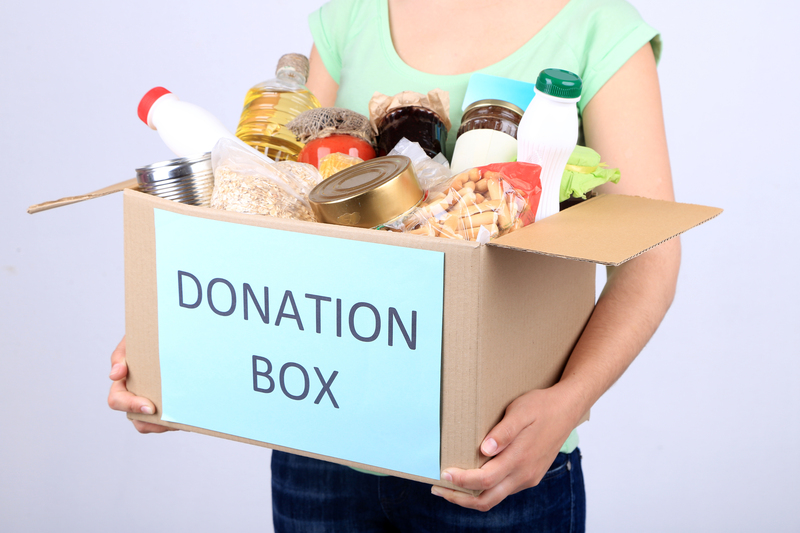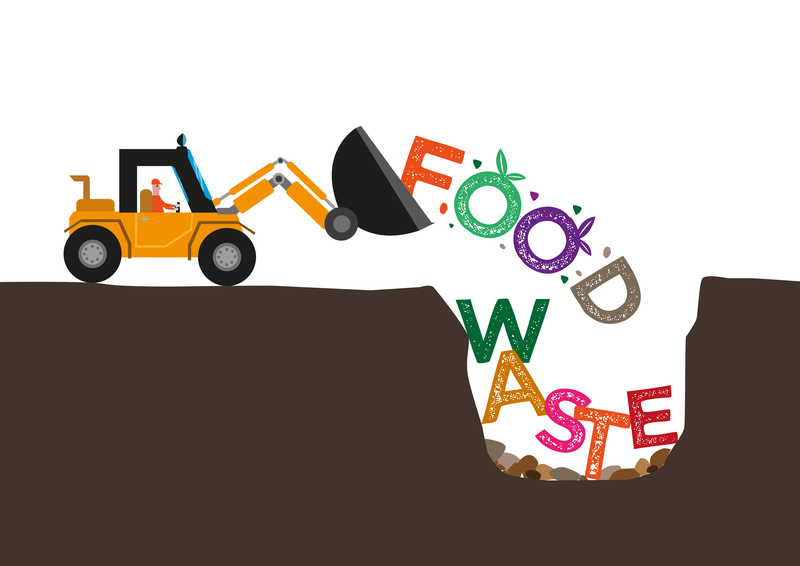Efficient Ways to Handle Bulky Waste and Save a Bundle
Managing bulky waste can be a daunting and often expensive task for homeowners, businesses, and property managers. Whether you're undertaking a major cleanout, renovating a property, or just decluttering your space, finding efficient ways to dispose of bulky waste can lead to big savings and greater environmental responsibility. In this comprehensive guide, we'll cover the best strategies and smart tips to handle your bulky items, from recycling and donation to clever removal services and DIY hacks. Read on to discover valuable insights and actionable steps to handle bulky waste efficiently while saving money.
Understanding Bulky Waste: What Counts and Why Manage It Properly?
Bulky waste, also known as bulky rubbish or large waste, refers to items that are too big to be collected by regular waste management services. Common examples include:
- Furniture (sofas, wardrobes, beds, desks)
- Large appliances (fridges, washing machines, ovens)
- Mattresses and carpets
- E-waste (TVs, computers, monitors)
- Building debris (wood, metal frames, bathtubs)
Proper management of this type of waste is crucial for several reasons:
- Environmental Protection: Minimizes the risk of landfills overflowing and reduces pollution.
- Legal Compliance: Many local councils and governments impose penalties for improper bulk waste disposal.
- Cost Savings: Avoids unnecessary expenditures on large skip bins or fines.
- Community Well-being: Reduces safety hazards and improves neighborhood appearance.

Best Practices for Handling Bulky Waste Efficiently
1. Inventory and Sort Your Bulky Items
Before you jump into bulky waste removal, start by taking a detailed inventory. Sorting through your unwanted items helps you:
- Identify items suitable for donation or recycling.
- Avoid disposing of items that could be resold, repurposed, or upcycled.
- Reduce the overall cost and effort in disposal services.
Pro tip: Make separate piles for donation, recycling, resale, and landfill to streamline the process and ensure nothing goes to waste.
2. Donate and Repurpose What You Can
Donating usable bulky items is one of the most cost-effective and sustainable solutions. Many charities and thrift stores gladly accept furniture, electronics, and appliances in good working order.
Where to donate bulky items:
- Charity shops (Goodwill, Salvation Army, local nonprofits)
- Non-profit furniture banks
- Online giving platforms or community groups (Freecycle, Facebook Marketplace, Nextdoor)
- Homeless shelters and refugee organizations
Repurposing is another eco-friendly (and often money-saving) option. For example:
- Old wardrobes can become garden sheds.
- Pallets can be used for DIY furniture.
- Broken electronics may be used for parts or art projects.
3. Sell Bulky Waste Online to Offset Costs
One of the most efficient ways to handle bulky rubbish is simply turning it into cash. Even if you think nobody would want your old dining table, chances are someone in your community is on the hunt for affordable furnishings or DIY materials. Popular platforms include:
- Craigslist
- eBay
- Facebook Marketplace
- Gumtree
Tip: Be transparent about the item's condition, and offer contactless pickup to streamline the process and minimize inconvenience.
4. Leverage Local Council Collections and Free Bulky Waste Pickups
Many municipalities and local authorities offer free or subsidized bulky waste removal services. These services are often available:
- On specific scheduled days.
- By appointment through online booking systems.
- With restrictions on the quantity or types of items.
Check your local council's website for bulky waste collection guidelines, or call their customer service for more information. Utilizing these services keeps your costs down and ensures waste is handled according to strict environmental standards.
Pro tip: Book early as slots can fill quickly, especially during moving seasons or after holidays.
5. Use a Professional Junk Removal Company--But Compare Quotes!
For large projects or when items are too big to move yourself, hiring a reputable bulky waste removal company is sometimes unavoidable. However, costs can vary widely, so it pays to gather multiple estimates and check reviews.
What to look for in a junk removal company:
- Licensing and insurance
- Commitment to recycling or responsible disposal
- Transparent pricing (avoid hidden fees)
- Customer reviews and testimonials
Some companies will only charge for the space your items take in their truck, while others might charge flat or hourly rates. Shop around to get the best bang for your buck.
6. Rent a Skip or Dumpster--But Only If Necessary
Renting a dumpster or skip bin is sometimes the most practical choice, especially for extensive renovation projects. However, this option can be one of the priciest routes, so use it wisely to avoid overspending.
How to cut costs on skip rentals:
- Choose the right size--too big means wasted space, too small means extra trips.
- Research local providers and compare costs.
- Group with neighbors to share the skip and split the cost.
- Only fill it with permitted material--prohibited items can lead to fines.
Note: Make sure you understand local permit requirements if you plan to place the skip on a public street.
7. DIY Transport to Recycling Centers
If you own or can borrow a van, trailer, or truck, transporting your bulky waste directly to a recycling center or landfill is a highly cost-effective option. Many recycling centers accept certain items for free, while others may charge a nominal fee.
Key benefits:
- One-off trip saves on labor costs.
- Opportunity to separate recyclable materials.
- Potential to donate items at the center if they're still usable.
Remember: Check ahead for the facility's opening hours, accepted materials, and any fees that could apply.
Special Considerations for Efficient Bulky Waste Management
Handling Electronic and Hazardous Bulky Waste
Electronics (TVs, computers, monitors) and hazardous materials (paint, chemicals, batteries) require special bulky waste disposal methods due to safety and environmental risks.
- Use designated e-waste drop-off days or events.
- Contact retailers who offer take-back programs for old appliances.
- Never mix hazardous materials with regular bulk waste--this is illegal in many areas.
- Check with your local council for safe disposal options.
Builders' and Renovation Waste Solutions
Construction, renovation, and DIY projects can generate a substantial amount of bulky renovation debris. Here's how to handle it efficiently:
- Source separate the waste--keep wood, metal, concrete, and general rubbish apart to enable recycling.
- Contact local recycling yards or scrap dealers for metal and reusable items.
- Investigate government incentives for sustainable disposal methods.
Using Community Bulky Waste Days and Swap Events
Many regions host bulky waste amnesty days or neighborhood swap events, where residents can drop off large items for free or trade unwanted goods.
Benefits include:
- Diverting reusable resources from landfill.
- Connecting with neighbors and promoting a sharing culture.
- Getting rid of multiple items at once without paying individual removal fees.
Key Tips to Save Money on Bulky Waste Removal
Plan Ahead and Time Your Cleanout
Eliminating bulky rubbish is always cheaper and easier if you plan ahead. Schedule your clearouts to align with:
- Free local collection days
- Community recycling events
- Peak demand for second-hand goods (e.g., before university move-ins)
Group With Neighbors for a Shared Removal
If several homes in your neighborhood need bulky waste collection, consider pooling resources to hire a single collection contractor or share a dumpster. This can drastically cut down individual costs.
Negotiate With Removal Services
Don't be afraid to negotiate prices for bulky waste removal, especially if you have multiple items or are a repeat customer. Many companies offer bulk discounts.
Minimize Waste Generation
- Buy quality goods that last longer, reducing the frequency of bulky disposal.
- Plan purchases carefully to avoid impulse buys that turn into unwanted clutter.
- Maintain and repair large items to extend their usable life.
Sustainable Disposal: Why It Pays to Think Green
Efficient and eco-friendly bulky waste management benefits not only your wallet but also the planet. Whenever possible, choose solutions that prioritize reduction, reuse, and recycling.
- Landfills are costly--financially and environmentally. Keeping bulk waste out helps save money and reduces pollution.
- Recycling creates jobs and reduces the demand for raw materials.
- Donating goods supports families and communities in need.
By following these strategies, you'll be part of a growing movement toward smarter waste handling that benefits everyone.

Quick Checklist: Efficient Bulky Waste Strategies
- Take inventory and sort your bulky items.
- Donate, sell, or repurpose whenever possible.
- Utilize council free collection days and community events.
- Compare prices for professional removal and negotiate discounts.
- Rent skips wisely--choose the right size and share costs where possible.
- DIY trips to recycling centers for maximum savings.
- Properly dispose of hazardous and electronic waste via approved channels.
Final Thoughts: Efficient, Cost-Effective, and Responsible Bulky Waste Handling
Handling bulky waste efficiently doesn't have to break the bank--or the environment. By planning ahead, exploring reuse and recycling options, making use of community and council programs, and shopping around for removal services, you can save a bundle while clearing your space. Prioritize sustainability, stay informed about local regulations, and don't overlook innovative community solutions. The rewards--cleaner homes, happier neighborhoods, and a healthier planet--are well worth the effort.
Start your journey to efficient bulky waste management today and enjoy both savings and satisfaction!